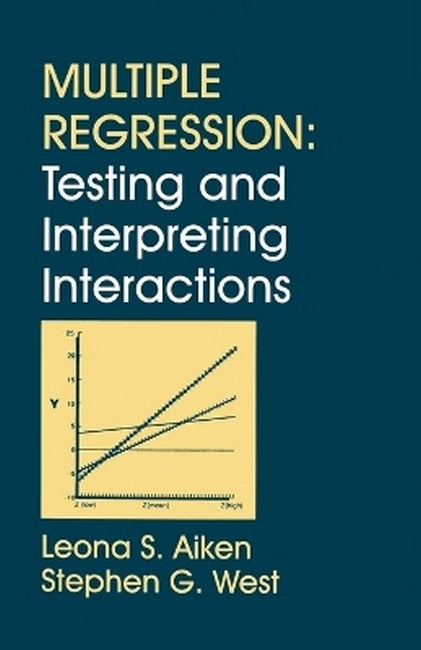Leona S. Aiken (PhD, Purdue University) is Professor and Chair of Social and Quantitative Psychology at Arizona State University. Her research interests include both quantitative methods and health psychology. In quantitative methods, she is known for her work in continuous variable interactions in multiple regression. She is also interested in the use of design approaches and mediational analysis to untangle the effects of individual components in multi-component interventions. In health psychology, she is interested in adoption of health protective behaviors across the life span, particularly among women, both from the perspectives of psychosocial models of the putative determinants of health protective behavior and from the perspective of interventions to increase health protective behavior. Stephen G. West (PhD, University of Texas at Austin) is Professor of Quantitative and Social Psychology at the University of Arizona. His current quantitative research interests include field research methods, structural equation modeling, multiple regression analysis, mediational analysis, graphics and exploratory data analysis, and longitudinal data analysis. Current social psychology research interests include personality research, applied social, prevention-related issues in health, mental health. He is the editor of Psychological Methods, published by APA.
Request Academic Copy
Please copy the ISBN for submitting review copy form
Description
Introduction Interactions between Continuous Predictors in Multiple Regression The Effects of Predictor Scaling on Coefficients of Regression Equations Testing and Probing Three-Way Interactions Structuring Regression Equations to Reflect Higher Order Relationships Model and Effect Testing with Higher Order Terms Interactions between Categorical and Continuous Variables Reliability and Statistical Power Conclusion Some Contrasts Between ANOVA and MR in Practice
"The book would serve very well as a reference for applied researchers and methodologiests. . . . In particular, this would be an excellent reference for anyone who encounters a multivariable prediction problem and has reason to believe that either a nonlinear model or a model including a variable product term would be appropriate." * Contemporary Psychology *

